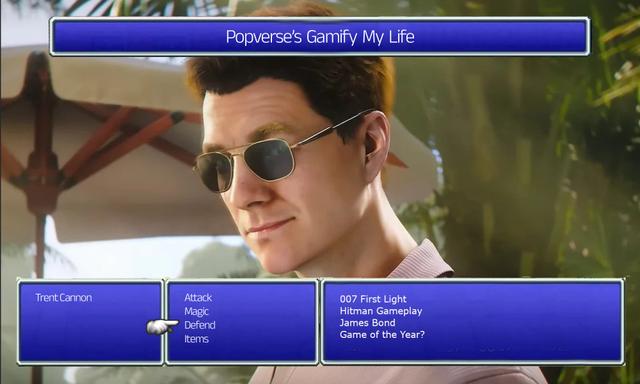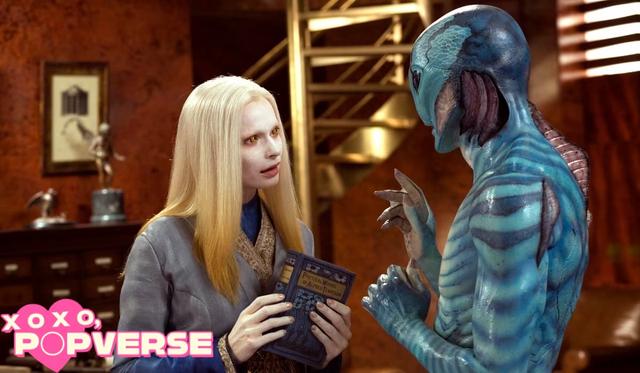If you click on a link and make a purchase we may receive a small commission. Read our editorial policy.
Op Ed: Is it ever okay to work for free as a creator?
Everyone has heard the adage "Don't work for free," but does that advice always apply?

If you’re a creative in any discipline, you have no doubt heard (or perhaps have even said) the adage, “Don’t work for free.”
On the surface, this is solid advice. Working for free is perhaps one of the most perilous traps for a creative. It has the potential of burning you out and, over time, driving you out of the arts entirely. It isn’t sustainable or even reasonable, and, chances are, anyone who asks you to work for free indefinitely doesn’t respect your time.
Alongside these basic truths, there is another truth, which is that just about every creative works for free or “on spec" (in hopes of being published or paid) at some point in their lives. Some of us juggle paid and unpaid gigs throughout much of our careers, carefully choosing what work will sustain our bank accounts and what work will sustain our souls. This is not ideal, but being as the world is what it is, there are a few things to weigh before deciding whether or not you’re willing to take on unpaid work.
But first, who am I?
I am a freelance writer. That is what I do instead of a full-time job, and there are many benefits as well as many downsides to this career choice. Pay instability, negotiating rates, no time off, lack of healthcare, limited choice in subject matter I’m allowed to write about, and general lack of respect are things that I deal with every single day of my life. Every time I decide to work on spec, for free, or for a low rate, I have to weigh that decision against a number of daily necessities. Can I afford to take my pets to the vet if they get sick? Can I buy groceries? Will my landlord let it slide if I’m a few days late on rent?
Working for free is a dangerous game for me, but it’s also one that I play regularly. Many of my own projects are independent, meaning they require that I work for free or they will never get off the ground floor. This means that, often enough, they take significantly longer than I would like them to, as paid work has to take a priority. Likewise, friends often ask me to contribute to their projects, and this also requires a level of mental juggling. It all comes down to what you can manage.
Though I’ve been doing this for around a decade, things surprise me all the time. Inflation, sudden illness, increased rent, having to move: these are all real problems that can derail you. If you rely only on yourself and occasional help from friends, this is all very dicey territory to get into, but if you, like me, worked supposedly legitimate jobs for years that were equally inconsistent and unreliable, you may find this to be something you are willing to navigate.
I won't tell you to save up a couple thousand dollars before you pursue an artistic career because that was not a possibility for me. I was born poor, and I remain poor. When I got my first stable writing gig, I lost it because of my life instability (and a particularly inflexible editor). When I got my second gig (you will likely get a second gig if you continue to apply yourself), I felt I had to throw myself into it, which meant working without a safety net at all. It was not easy, and it’s not something I could reasonably advise anyone to do because it involved several leaps of faith that didn’t always work out.
I can’t tell you that things will always work out. I can’t tell you that your safety net will save you. I can tell you that I’ve never regretted forgoing payment to help a friend on their project, but that it’s important to have boundaries in place so that resentments don’t overtake the friendship, which is always a very real danger.

There are no guarantees
Publishing is a rocky road, and you need to be aware that people can take advantage of their positions of power in this industry. There are a lot of things you will have to make peace with as time goes on that might make you uncomfortable, but that isn’t to say that no battle is worth fighting. Any battle you believe in is likely worth sticking to your guns on. I seldom work for free, but I often take on low-paying work because I believe in the project. This has to be an individual decision that you make for yourself, and you can always change your approach if you find your initial thoughts have changed once filtered through the hard bedrock of lived experience.
Questions to ask yourself before taking on no or low-paying work
How do you feel?
We live in a world that constantly dismisses human emotions as frivolous or unnecessary, but I believe that our gut instincts have been saving our lives since our early days as a species and they remain as vital to our survival today. If you feel exploited, then it doesn’t actually matter how anyone else feels about the matter. That’s why I encourage people to always examine how they feel about something before making decisions. If you’re excited to work on something, then that's what matters.
What's the project?
The fact is that working for free is never ideal, but sometimes it can be something you make peace with. I came of age making zines and offering what is, in retrospect, a truly wild amount of free labor booking and hosting shows, because I believed that avant-garde, female, and queer musicians deserved to have venues to perform and deserved to have someone advocating for them. This is not to say that mistakes weren’t made, just that I learned a lot from those experiences. It continues to inform me today, and in many ways, that makes it worth it, even now.
I stopped organizing shows because I was beginning to resent it, and my advice is always that you should stop doing things that you resent because that's no way to live. Still, leaving projects and career paths is much more difficult than a wave-of-the-hand choice, and there is always room to change your mind, so long as you leave space for it. My experience organizing shows didn't put an end to my working for low or no paying projects, I just changed things around to make it more sustainable for myself.
For example, one boundary I regularly feel a need to set is that, if you aren’t paying, it may take me longer to complete the work. Working on projects that I find to be interesting or that simply share my ethics and seem fun can be worth it, even without pay. You just have to be sure that your heart is in it and protect your own peace of mind.
Is this exploitation or simply low/no budget?
Particularly in the world of comics criticism, many sites are dealing with minimal or non-existent budgets. Independent sites are often run through ads or crowdfunding, and the level of support offered varies from very small amounts to being barely able to cover low-or-no-paid comic reviews. However, these sites often serve a very important purpose by covering subject matter that larger sites may steer away from. Furthermore, the editors are much more likely to engage with a writer, offering feedback and honing the piece into something that everyone can be proud of.
If you’re at the beginning of your career and want editorial engagement, need to build up your bylines and practice your skills, or you simply believe in a site and want it to succeed, these sites can be satisfying places to volunteer, so long as you make peace with the arrangement.
This is not always the case. Some sites do not provide much editorial feedback, underpay to the point of unsustainability, and don't provide much opportunity to choose your own topics. These sites may not be worth your time, even if they do pay a minimal rate.
This is all to say that there is some nuance in this conversation, and that occasionally not being paid at all can be more fulfilling than taking on low-paying work. Neither scenario is ideal, but when you’re first starting out, chances are you’ll need to make these kinds of decisions. There is no right choice, only the choice that works for you. Just be aware that any route you travel doesn’t need to be forever and you’re always free to end a partnership at any time if it no longer suits you.
What do you get out of it?
This is perhaps the most important question of all. Regardless of whether or not a project pays, you have to get something out of it. I recently helped a friend on a filming project in which payment was offered, but I refused it. This was for a few reasons: my friend isn’t rich, I wanted to spend more time with my friend, the work wasn’t particularly difficult, and I needed a break from other projects. Though finances are a constant concern, so is my ability to continue making human connections, and sometimes, it’s just nice to have fun with something that is low-stakes and doesn’t require a ton of effort. As such, I didn’t get paid, but I still feel it was worth it.
Keep in mind that if you believe in a piece and can’t find a publisher, you can always publish it yourself through your own blog. This route to growing your career takes longer and is more difficult, but it may very well be the best option for you.,

This all sounds pretty ambiguous
Yes! That’s because it is. There is no foolproof way to approach these decisions. The best thing you can do for yourself is to get clear expectations and boundaries from the people you work with, and if they start to renege, understand that you might have to leave the partnership entirely.
As with all things in life, it’s important to keep a good sense of your own autonomy at the forefront of your dealings. Though I have certainly felt exploited at times, I try to examine these moments in a larger context of what I have gained, and how far I have come, even if it has been and continues to be exceptionally difficult. I am not saying that it’s right that it should be difficult, only that it is and that you can come to terms with that.
However, I can also say that, completely removed from expectations or audience, there is nothing quite like completing a piece and feeling like you absolutely nailed it, regardless of if anyone else agrees or even sees the work at all. In some ways, we are all doing this for ourselves, too, and that is an important thing to keep in mind. To that end, working on projects where you care about the statement, gain important bylines, or are able to interact with an editor that is genuinely responsive to your work can be just as valuable as anything else.
Adapting to an industry that's getting worse: Dave Scheidt on the illusion of 'breaking in'
Follow Popverse for upcoming event coverage and news
Find out how we conduct our review by reading our review policy
Let Popverse be your tour guide through the wilderness of pop culture
Sign in and let us help you find your new favorite thing.
















Comments
Want to join the discussion? Please activate your account first.
Visit Reedpop ID if you need to resend the confirmation email.